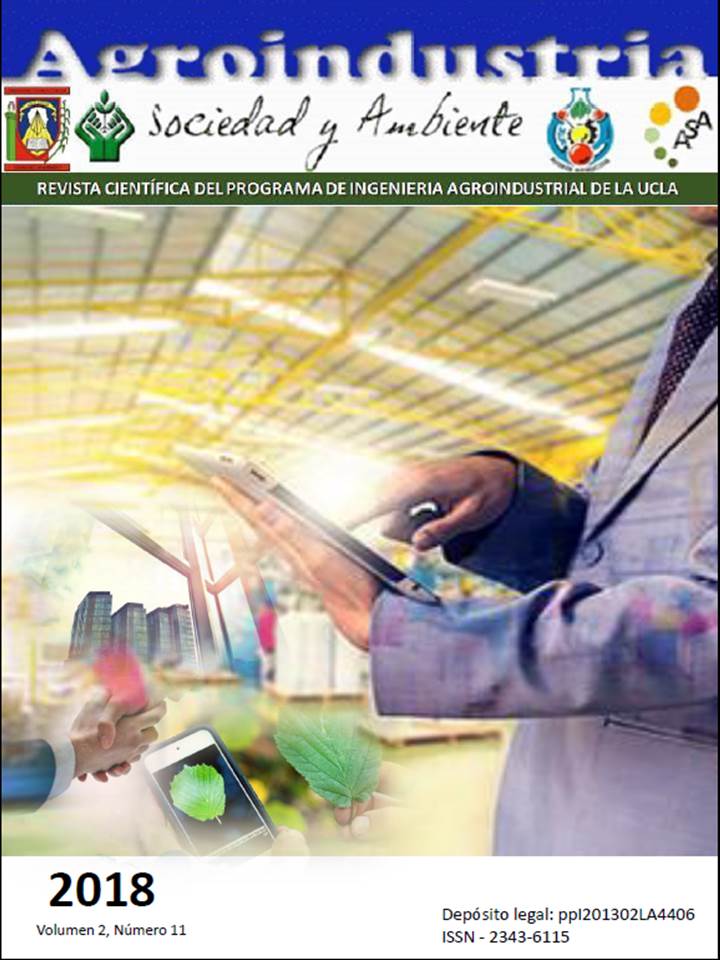Entrelazamiento toma de decisiones-procesos gerenciales en el modelo cooperativista
Abstract
The socioeconomic situation of Venezuela is a reason to promote solidarity economy and one of the expressions of this, is the cooperativism, business model based on inclusion and sustainability that offers a path towards economic, social and political justice. In this, decision making is conditioned by a set of principles that legitimize it. It is for this reason, that this study seeks to interpret how the interlacing that exists between decision making in relation to managerial processes occurs, , that is to say, that intricate relationship that exists between a decision and the fact of planning, organizing, ordering, coordinating and controlling among others that emerge within the dynamics of the context. The investigation was approached from the interpretative paradigm. The method, Grounded Theory that allowed generating an interpretation of the relationship that exists between decision making and management processes based on the perceptions of the members of the cooperative. Among the findings highlight that participation in the administrative management it represents a source of moral encouragement and that the motivation comes given all for being involved in Decision Making This process is based on transparency and they deliver it to the best of their efforts and knowledge to achieve common goals.
Downloads
References
Dávila, R. (2004). Innovación y éxito en la gerencia cooperativa. Casos exitosos de cooperativas rurales de ahorro y crédito. Primera edición, 2004. Pontificia Universidad Javeriana. Facultad de Estudios Ambientales y Rurales. Instituto de Estudios Rurales IER Unidad de Estudios Solidarios UNES. Disponible en: http://www.ruralfinanceandinvestment.org/sites/default/files/1155819526739_Colombia.pdf_1_.pdf
Garteiz-Aurrecoa, J y Gadea, E. (2007). Desarrollo territorial, participación y Cooperativismo. REVESCO Nº 92 Segundo Cuatrimestre 2007. Disponible en: http://webs.ucm.es/info/revesco/txt/REVESCO%20N%2092.5%20Javier%20DIVAR,%20Enrique%20GADEA.htm
Marín, M. (2014). Administración serena del tiempo para la alta gerencia. Universidad Monteávila. Caracas, Venezuela.
Melcher, D (2008). Cooperativismo en Venezuela: Teoría y praxis. Revista Venezolana de economía y ciencias sociales v.14 n.1 Caracas abr. 2008.
Disponible en: http://www.scielo.org.ve/scielo.php?script=sci_arttext&pid=S1315-64112008000100007
Montes, M. (2009). Aprendizaje Cooperativo en una Experiencia Comunitaria”. Trabajo de grado sin publicar para optar al grado de Magister en Ciencias de la Educación. Universidad Nacional Experimental Simón Rodríguez. Barquisimeto, Venezuela.
Organización de Naciones Unidas (2015) ONU destaca la importancia de las cooperativas para el futuro sostenible. Centro de Noticias ONU. Disponible en: http://www.un.org/spanish/News/story.asp?NewsID=32754#.Whcwj5drx0u
Prato, M. (2011). Abordaje de la Investigación Cualitativa a través dela Teoría Fundada en los datos. Ingeniería Industrial. Actualidad y nuevas Tendencia. Año4, Vol.II, N°6. ISSN: 1856 8327. P 79-86. Disponible en:
Reyes, A (2017) Cada año surgen entre 10.000 y 20.000 cooperativas en Venezuela. El Nacional. Economía. Disponible en: http://www.elnacional.com/noticias/economia/cada-ano-surgen-entre-10000-20000-cooperativas-venezuela_177324
Robbins, S. (1996). Comportamiento Organizacional Teoría y Práctica. Séptima Edición. Prentice-Hall Hispanoamericana, S.A. México.
Strauss, A. y Corbin, J. (2002). Bases de la Investigación Cualitativa. Técnicas y Procedimientos para desarrollar la Teoría Fundamentada. Editorial Universidad de Antioquia. Colombia.
Published
How to Cite
Issue
Section




